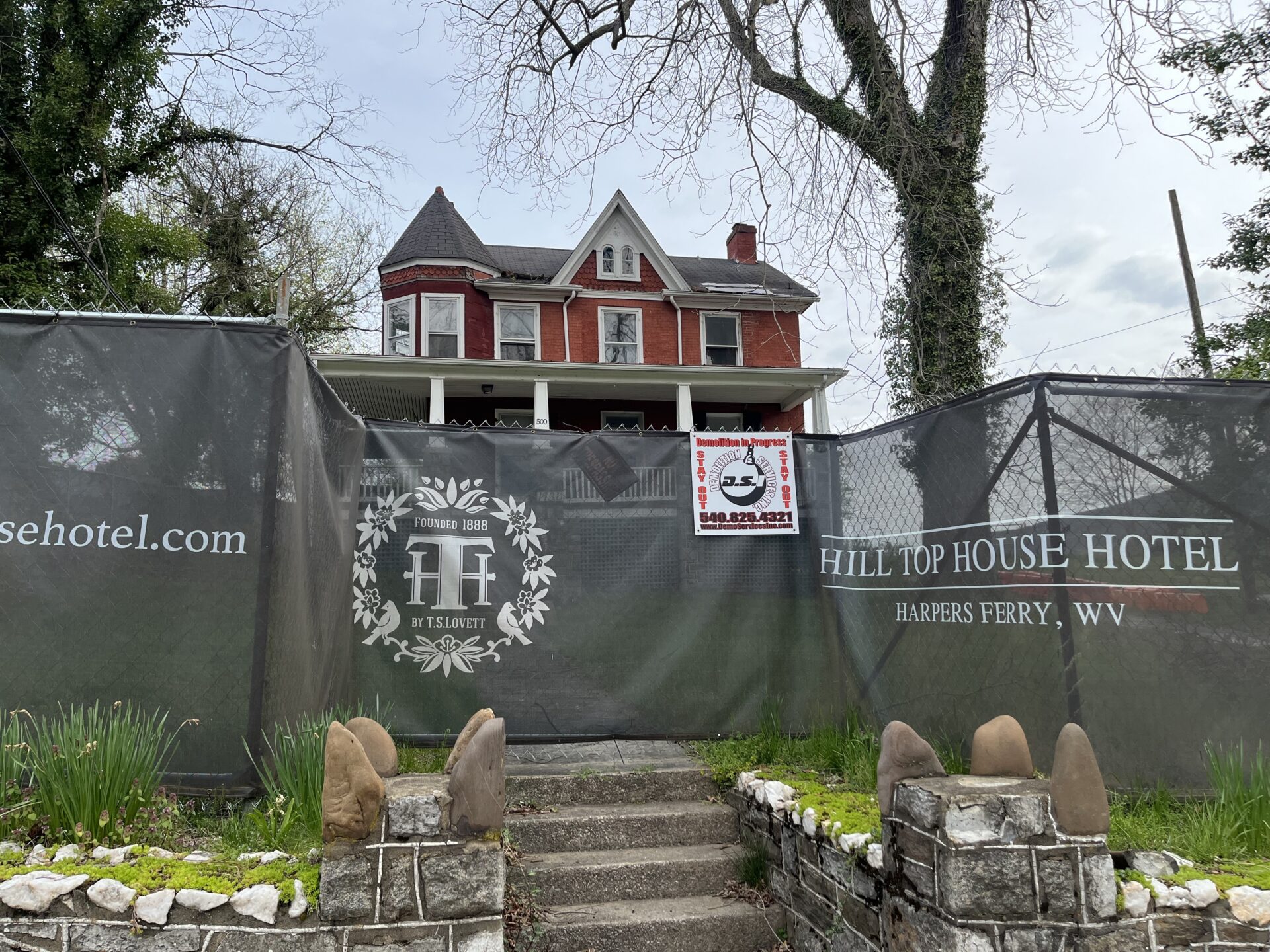Overlooking the Potomac River, the future site of the Hill Top House Hotel has been blocked off with chain-link fences and sheets of fabric for years.
First proposed in 2007, the luxury hotel aimed to renovate and expand a historic nineteenth-century hotel that had fallen into disrepair.
The plan generated controversy among residents concerned about the scale of the project, which includes an underground parking garage, on-site restaurant and public green space.
For their part, representatives with SWaN & Legend Venture Partners — the Virginia-based investment group that owns the property — have maintained their intention to see the project through, even as local objections have ebbed and flowed.
But community pushback has not come without challenges, according to SWaN CEO Karen Schaufeld. The years of delays to the project have altered the project’s costs, which Schaufeld said rose significantly during the COVID-19 pandemic.
“The increase in construction and building costs due to numerous delays and, subsequently, the COVID-19 pandemic caused Hill Top’s total project cost to balloon to $150 million,” she wrote Thursday in an email to West Virginia Public Broadcasting.
To offset these new costs and help complete a project decades in the making, SWaN representatives are pursuing a new financing model: West Virginia’s tax increment financing (TIF) program.
Schaufeld wrote that admission to the program is a “financial necessity” for the hotel’s completion.
Photo Credit: Jack Walker/West Virginia Public Broadcasting
The TIF program identifies areas in need of development and economic revitalization. By designating these areas as TIF districts, property developers can receive financial support for their projects on site.
When a site is declared a TIF district, its property value is frozen for a number of years, during which property owners can further develop within the district without facing increased property taxes.
On April 4, the Jefferson County Commission took the first steps toward securing the hotel its new status, voting narrowly to submit a TIF district application to the West Virginia Department of Economic Development.
This is merely a first step in the process, as the Jefferson County Commission will receive final approval over TIF districting plans.
Still, during an April 4 commission meeting, some members of the commission expressed concern over the speed of the application process, and encouraged additional time for public feedback.
Additionally, county commissioners expressed concern that the application was not complete at the time of their voting.
“I think we need to schedule another public hearing,” said County Commissioner Tricia Jackson, who voted against the application. “I think it would be irresponsible and reckless for this commission to advance this without having completed application information and [having] the public’s involvement.”
Last fall, the commission hosted a separate public hearing to receive community input over the plans. Additionally, the commission hosted a workshop on TIF districts in late March in preparation for the project.
Schaufeld said that the TIF district application “is a dynamic document, which contains values that change with time.”
Photo Credit: Jack Walker/West Virginia Public Broadcasting
“Since the progression of this TIF application was delayed by many months due to the Jefferson County Commission itself, there are certain areas that are being updated,” she wrote.
Other members of the commission said delaying the application process could have adverse effects on the project on the whole.
County Commissioner Pasha Majdi, who voted in favor of the application, added that the commission would have time to review the results from the Department of Economic Development before making a final decision.
“I’m concerned that if we delay this application, we would risk losing funding for public benefits like an underground parking garage and green space,” he said. “The project, it’s going to continue regardless. But without a TIF these public benefits could be lost.”
Ultimately, the commission voted in favor of the application 3 to 2, advancing a project characterized by years-long standstills.
In her email, Schaufeld wrote that SWaN expects a “swift turnaround” on their application, and a response from the Department of Economic Development within 60 days of its submission.
Once a response has been received, the application will return to the Jefferson County Commission for final approval. If approved, the county will then have three to six months to finalize bonds for the project.
Schaufeld added that the project’s latest advancement has brought renewed excitement.
“We hope that after many years of costly delays we will be able to bring this project to life so that these economic benefits can finally come to Jefferson County,” she wrote.
